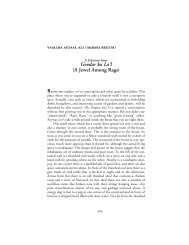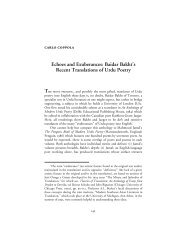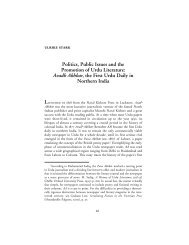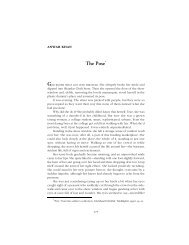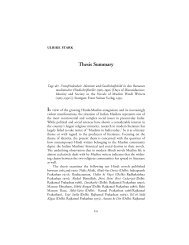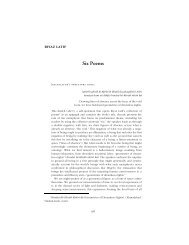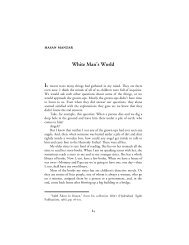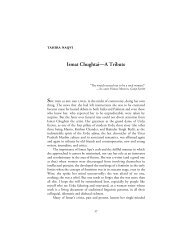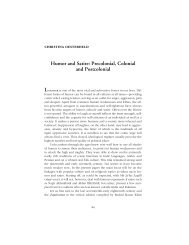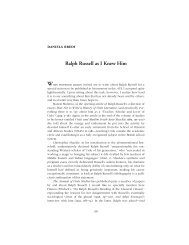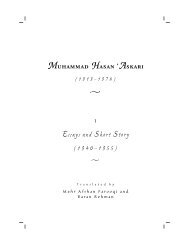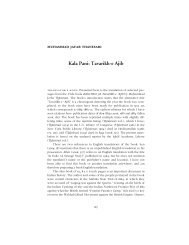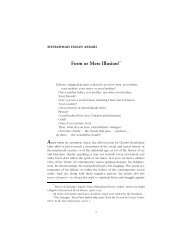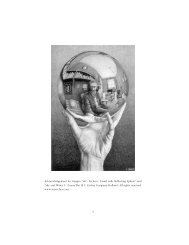Delhi College and Urdu* - MINDS@UW Home
Delhi College and Urdu* - MINDS@UW Home
Delhi College and Urdu* - MINDS@UW Home
Create successful ePaper yourself
Turn your PDF publications into a flip-book with our unique Google optimized e-Paper software.
GAIL MINAULT • 123they obtained a grant from the general education fund for the support oforiental learning at the madrasa. In 1827, the government sanctioned anadditional sum, supplemented by funds raised locally, to start Englishclasses <strong>and</strong> teach astronomy <strong>and</strong> mathematics “on European principles” atthe school. About this time, the Madrasa of Gh≥zµu ’d-Dµn Kh≥n began tobe called <strong>Delhi</strong> <strong>College</strong>, with an oriental section (the madrasa), whereArabic <strong>and</strong> Persian grammar, literature, <strong>and</strong> other Islamic subjects (‘ul∑m)were taught, <strong>and</strong> an anglo-vernacular section (or institution), wherewestern subjects were taught. In both sections, the medium of instructionwas Urdu. 14Then in 1828 or 1829, Nav≥b I‘tim≥du ’d-Daula, a minister at the courtof Awadh, established a new vaqf, specifying that the income from theendowment should go to the support of oriental learning in his nativecity, <strong>Delhi</strong>. He asked the East India Company to administer this endowment,indicating that—less than a decade before the Anglicize triumphalismof Macaulay’s famous Minute on Education—North Indian notablesfelt no cultural threat from the British administration’s educationalpolicies. The GCPI thanked the Nav≥b for his “munificent donation” <strong>and</strong>suggested that—rather than found another institution—the income fromhis endowment could best be spent supporting the existing <strong>Delhi</strong>madrasa. The local committee in <strong>Delhi</strong> applied the funds from theNav≥b’s vaqf to the account of the oriental section of <strong>Delhi</strong> <strong>College</strong>, <strong>and</strong>reassigned part of the government funds to the anglo-vernacular sectionof the college. 15By the mid-1830s, power on the GCPI in Calcutta had shifteddefinitively in favor of the Anglicists, leading to Macaulay’s Minute withits famous line about the formation of “a class of persons, Indian in blood<strong>and</strong> color, but English in taste, in opinions, in morals, <strong>and</strong> in intellect”that has been quoted ever since. He firmly rejected further support fororiental education, <strong>and</strong> opined that, even at those oriental institutionsthat survived the government’s change in policy, stipends to studentsshould cease. 16In <strong>Delhi</strong>, the new policies emanating from Calcutta resulted in thecancellation of a number of student stipends. What’s more, the Principal14 MDK, pp. 22–23, 32–33; Sharp, pp. 188–9.15 <strong>Home</strong> (Pub) file # 8–14 & KW (15 July 1840), National Archives of India[NAI].16 Sharp, p. 116.



